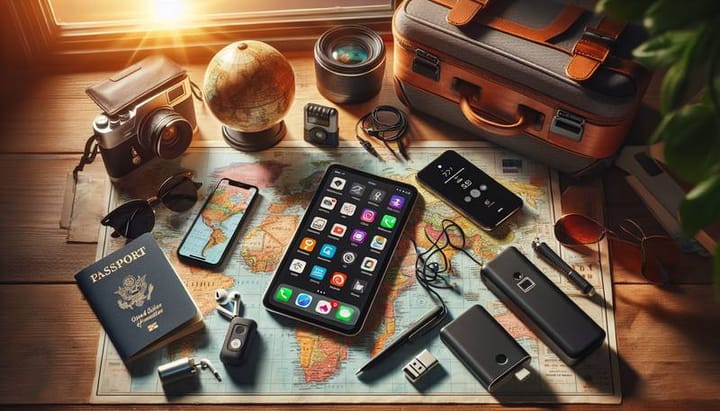The Future of Work: Remote and Digital Trends

In a world where technology is king and the traditional office environment becomes a concept of the past, the future of work seems to be pointing towards a horizon where remote work and digital trends hold sway. From the corner office to the home office, from the daily commute to the digital login, the landscape of work is evolving in exciting and sometimes challenging ways. With innovations in technology paving the way, the question on everyone's mind is: what does the future of work look like? This tech blog delves deep into the remote and digital trends that are shaping our work lives, offering a glimpse into the new normal that is just around the corner. Buckle up, because the future of work is here, and it's nothing short of breathtaking.
The Rise of Remote Work
Even before the pandemic struck, remote work was on an upward trajectory. But it took a global crisis to truly catapult it into the spotlight. The benefits of remote work have since become clear: more flexibility, no commute, a better work-life balance, and the ability to hire talent from a global pool. For employers, it's cost-saving, with less need for physical office space and resources. For employees, it provides a sense of autonomy and control over one's work environment. However, it's not without its challenges. Setting boundaries, managing distractions, and staying connected with colleagues can be difficult when working from home. Despite these challenges, remote work doesn't seem to be a temporary trend. Companies such as Twitter and Shopify have even announced that they will allow employees to work from home "forever" if they choose. So it's time to buckle up and embrace remote work — not as the future, but as the present.
Virtual Meetings and Collaboration
Gone are the days when meetings always meant being huddled around a conference table. Virtual meetings have taken over with the rise of platforms such as Zoom, Microsoft Teams, and Google Meet. These digital solutions have become the backbone of remote work, allowing for face-to-face interactions without the need for physical presence. But it's not just about replicating the in-office meeting experience; it's about enhancing it. Features like screen sharing, real-time document editing, and virtual whiteboards have revolutionized the way we collaborate. Virtual meetings also save time and money, cutting out travel expenses and enabling quick, on-the-fly convening of global teams. The challenge lies in keeping these meetings engaging and productive in a virtual format, and combatting "Zoom fatigue" that can come from back-to-back virtual meetings. Yet, with the continual evolution of platform capabilities and a growing familiarity with digital etiquette, virtual collaboration is not just a trend but an inevitable mainstay of modern work.
AI and Automation in the Workplace
Artificial intelligence (AI) has long been the stuff of science fiction, but it's now a tangible force driving change in the workplace. Automation, powered by AI, is handling tasks from the mundane to the complex — from scheduling meetings and responding to emails, to analyzing large datasets and providing customer service through chatbots. This technological shift is streamlining processes, reducing errors, and freeing up humans to engage in more meaningful, high-value work. It's also causing some trepidation about job security and the need for new skills in an AI-driven job market. However, rather than replace human workers, AI is set to collaborate with them, creating new opportunities for innovation and productivity. In the future of work, an understanding of AI and the ability to work alongside it will be invaluable skills as we navigate digital workplaces that are smarter and more efficient than ever before.
The Digital Nomad Lifestyle
A term once reserved for a select few, 'digital nomad' has entered the mainstream lexicon with more people than ever ditching their desk-bound careers for a life of work and travel. Technology has enabled this lifestyle, with cloud-based apps, ubiquitous Wi-Fi, and communication tools keeping nomads connected no matter where they are. The advantages are compelling – the freedom to travel, setting your own hours, and the ability to work from anywhere in the world. However, it requires a high level of discipline, a knack for time zone juggling, and the capability to navigate varying internet speeds and work environments. Companies are also recognizing the benefits, as remote policies can result in a happier, perhaps even more productive, workforce. The digital nomad lifestyle is contributing to a shift in work culture — one that values output over hours logged and outcomes over the physical presence.
Staying true to the ease of understanding, yet informative and entertaining tone, this tech blog serves as the guiding light for navigating the sometimes murky waters of the future of work. From the pros and cons of remote work to the innovative leaps in AI, join us on a journey to understand how the digital age is redefining what it means to 'go to work.'
The Future of Office Spaces
As remote work becomes the norm for many, the purpose and design of office spaces are undergoing a radical transformation. Businesses are reimagining offices as places for collaboration and social interaction, rather than day-to-day workstations. We're seeing an increased focus on flexible workspaces, with amenities that support both individual and group activities. Coworking spaces are thriving, providing a shared environment where ideas can cross-pollinate across organizations. It's not just about hot desks and free coffee, but creating environments that foster creativity, community, and wellness. Offices are becoming smarter too, with sensor-driven analytics to monitor and optimize everything from energy usage to space utilization. While the traditional office is far from extinct, it's clear that the future lies in flexible, tech-savvy spaces optimized for the ways we prefer to work in this digital age.
Preparing for the Future of Work
As we embrace the future of work, it's essential to prepare for the shifts and disruptions it will bring. This means being proactive in learning new skills, especially those that are less susceptible to automation, such as critical thinking, creativity, and interpersonal skills. For companies, it means supporting employees through training and development, and creating a culture that values lifelong learning. The need to adapt cannot be overstated — with technology changing at lightning speed, agility is crucial for both individuals and organizations. Preparing for the future of work also involves embracing diversity, as a global talent pool requires an inclusive approach. Companies that can effectively manage and support a diverse, remote workforce will be well-positioned to thrive in an increasingly digital world.
As we conclude our exploration of the future of work, it's evident that the winds of change are gusting through the world of work as we know it. The seismic shift from physical offices to digital workspaces, from in-person meetings to virtual collaborations, and from set work hours to flexible schedules signifies much more than a fleeting trend. It heralds the dawn of an era where work becomes more about what we do rather than where we do it. As we step into this brave new world of work, it's essential to carry with us an open mind, a willingness to adapt, and a spirit of innovation. After all, the future is not a distant dream; it's a burgeoning reality. And in this reality, those poised to succeed are the ones who recognize that in the digital age, our most valuable asset is the ability to evolve.
So, as we log off from this comprehensive guide on the future of work, remember that the blueprint for success lies within your adaptability, continuous learning, and embracing the digital transformation. Keep pushing boundaries, exploring possibilities, and setting the digital trends that will define our work tomorrow. Stay connected, stay innovative, and here's to shaping a future of work that is not just productive, but also fulfilling and inspiring for all.


